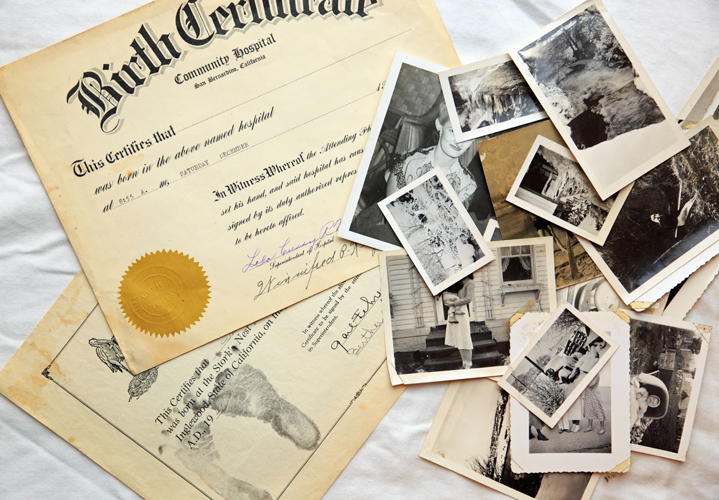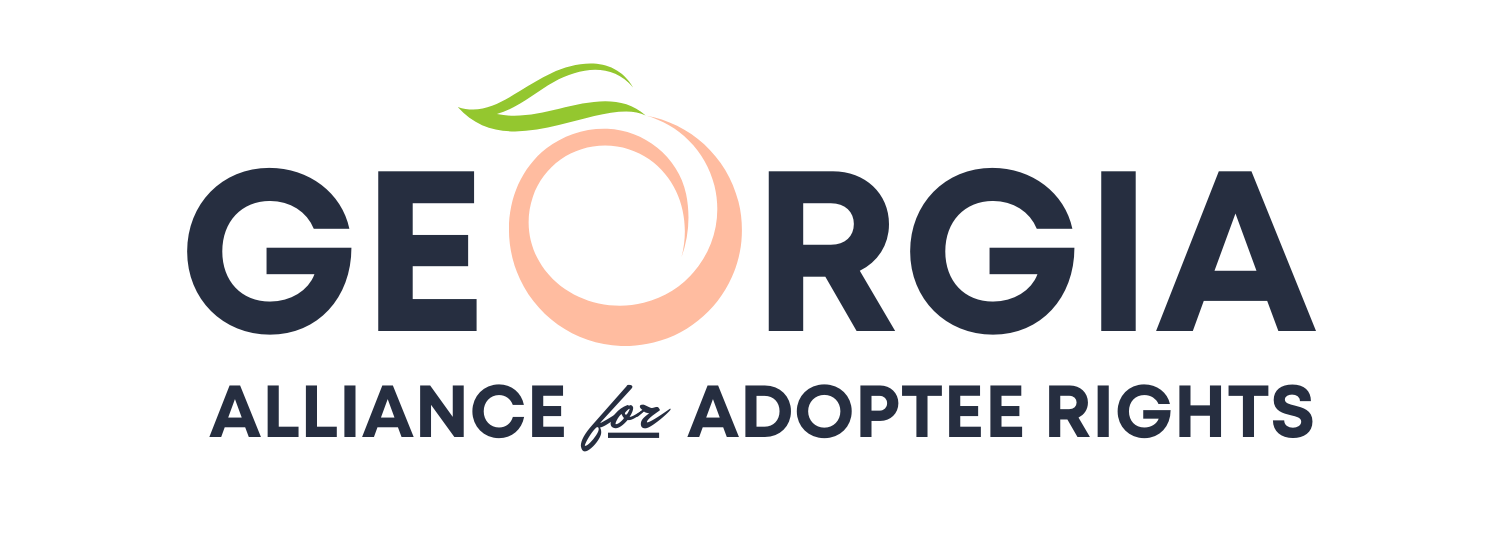
Myths About Adoptees Obtaining Original Birth Certificates
Whenever change occurs, resistance is often offered by those who believe and practice the current system. Before adoptee access to the original birth certificate was legislated in states, provinces and countries, no hard data existed regarding the impact of information being given to adopted persons. Now we have that data. Let’s bust these myths!
The results based on states that have instituted adoption reform and recorded in hard data, are as follows:
MYTH #1
Only a small number of adopted persons want to know their birth information.
- In a study of American adolescents, the Search Institute found that 72 percent of adopted adolescents wanted to know why they were adopted, 65 percent wanted to meet their birth parents, and 94 percent wanted to know which birth parent they looked like.
- Psychological literature has established that whether mental or actual, searching is an understandable, common part of healthy adaptation for adopted persons. (A Psychosocial Model of Adoption Adjustment by David Brodzinsky, Marshall Schechter and Robin Marantz Henig)
- In Oregon, as of February 1, 2007, seven years after passage of approving access in 2000, 9193 adult adoptees have requested and 8,878 have received their original birth certificates. (Source)
MYTH #2
Most birthmothers want to forget the past and not have “old wounds reopened.”
- Through registries and data collected in states and countries where access was legislated, 95% of birthparents who were contacted wanted reunion. (1989 Maine Department of Human Resources Task Force on Adoption)
- In Oregon, only 0.25% of birthparents requested no contact. That’s less than 1%.
MYTH # 3
Birthmothers need to be protected from searching adoptees.
- Adopted persons are most often reticent to pursue reunion in fear of risking rejection.
- Birthparents have the same protections under the law as anyone else. They have the right of privacy and boundaries as does everyone, but privacy does not equal secrecy. Privacy is about healthy boundaries; secrecy prevents people from having information about themselves.
- Researcher John Triseliotis from University of Edinburgh found in 25 years of study that adoptees needed genealogical and background information to confirm their identity based on both adoptive and birth family. In researching the impact of opening records in Great Britain, he found those who did search “did so with considerable forethought. Furthermore, the vast majority are over-careful not to hurt anyone’s feelings.” (In Search of Origins: The Experience of Adopted People by John Triseliotis)
- Ninety-four (94%) percent of non-searching birthmothers when contacted by their adult birth children were pleased, according to a recent British study. (“The Adoption Triangle Revisited: A Study of Adoption Search and Reunion Experiences,” British Association for Adoption and Fostering, 2005)
MYTH # 4
Lifting secrecy will increase abortion.
- Data from states where access exists reveals that if access has had any effect on adoptions and abortions, it was to increase adoptions and decrease abortions.
- Since adult adoptees in Oregon and Alabama obtained access to their original birth certificates in 2000, abortions have declined much faster in those states than in the nation as a whole. Between then and 2003 (the last year for which national data are available) resident abortions declined 10% in Oregon and 13% in Alabama, but only 2% in the nation as a whole. In other words, after adoptees gained access in those states, abortions declined five times as fast as in the country as a whole.
- Workers at pro-life centers such as Birthright report that young women today will only choose adoption if they are assured of updates or contact with the adoptive family. Gretchen Traylor, Birthright counselor in Minnesota, says, “When adoption is under consideration, the young woman’s overriding concern is that she will be unable to contact her child later in life, and that the child will not be able to find her as well. Pregnant women tell me that if such contact is NOT available, they would rather abort.”
- In a national survey of 1,900 women having abortions, not one woman cited the inability to choose a confidential adoption as a factor in her decision to have the abortion. “Reasons for Terminating an Unwanted Pregnancy,” Guttmacher Institute, 2003.
- A September 24, 2004 (Page D1) Wall Street Journal article reports that those parts of the country practicing open adoption currently do not have enough couples to adopt infants being relinquished by birth parents wanting open adoption.
MYTH #5
Opening up adoption will break up adoptive families.
- With a law that gives adults access to their original birth certificates, nothing changes while the adoptee is a child under the care of adoptive parents. Birth information and contact with birth family does not replace one’s relationship to adoptive parents but rather leads to a more cohesive identity for some adult adoptees.
- Research from the United Kingdom on the results of access found that the loyalty and love adopted people felt towards their adoptive parents and family did not lessen as a result of the search and reunion process. In some cases adopted people reported that the experience of searching enhanced their relationship with their adoptive families. (British Association for Adoption and Fostering, 2004)
- Many therapists believe the process of finding past history is so helpful to the adoptee that it strengthens the adoptee’s relationships with their adoptive families.
- After New Zealand allowed adult adoptee access to adoption records, researchers found that reunion actually strengthened relationships between adoptees and their adoptive parents, often laying fantasies about birth family to rest. Results showed that adopted children and adults can successfully integrate two or more families into their lives. Finding birth relatives does not mean they relinquish their adoptive ones. (The Right to Know Who You Are, Keith C. Griffith)
- Research conducted by the University of Minnesota and University of Texas reveals that parental fears about entitlement in open adoptions were unfounded, and in many ways, contact with the birth family strengthened the bond between adoptive parents and children. (Openness in Adoption, Harold D. Grotevant and Ruth G. McRoy)
MYTH # 6
Adoptees conceived by rape or incest (and birthmothers too) will be devastated by search, reunion and/or learning truth about origins.
- While unsavory details of one’s past are not pleasant to cope with, they still are a part of one’s life. Denying access to one’s personal information about himself/herself is robbing that person of his/her heritage. The contents of the information are not as important as the fact that information becomes available, and questions are able to be answered.
- New Zealand found that adult adoptees can better cope with such traumatic revelations than with not having any information. Oddly enough, many had already fantasized the event. Most adoptees know that in exploring the unknown void of their origins, anything is possible, realizing that there must have been difficulties or they would not have been placed for adoption. This information remaining secret increases the shame. The reality, once it is confronted, is less than the enormity of the secret.
- One adoptee conceived from rape said, “When we met things were pretty tense between us. I knew that my birthmother was holding back something. I asked her and she told me. We both held each other tight and howled for about an hour. Then we shared exactly what had happened and we shared our hurts and fears. It was one of my birthmother’s fears that one day I would find her and ask her. And now that traumatic time had come. Somehow, in the sharing of our deep personal grief feelings, we built up a relationship. We now understand each other on an issue that no one seems to understand.” (The Right to Know Who You Are, Keith C. Griffith)
Information from American Adoption Congress
https://www.americanadoptioncongress.org/reform_myths.php
Adoptee Rights are Human Rights
